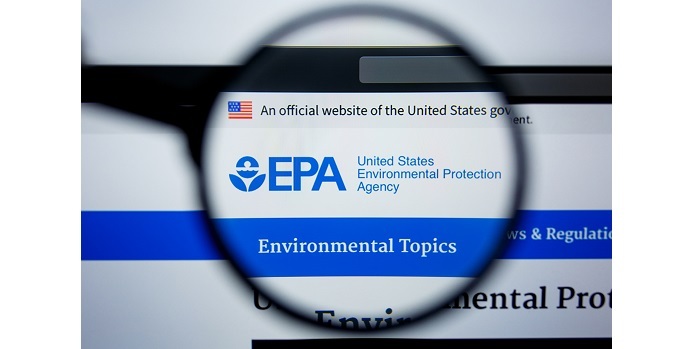
 Data Structure
Data Structure Networking
Networking RDBMS
RDBMS Operating System
Operating System Java
Java MS Excel
MS Excel iOS
iOS HTML
HTML CSS
CSS Android
Android Python
Python C Programming
C Programming C++
C++ C#
C# MongoDB
MongoDB MySQL
MySQL Javascript
Javascript PHP
PHP
- Selected Reading
- UPSC IAS Exams Notes
- Developer's Best Practices
- Questions and Answers
- Effective Resume Writing
- HR Interview Questions
- Computer Glossary
- Who is Who
Transgenics: Ethical & Biosafety Issues
Insight into Transgenics
Transgenics, the genetic modification of organisms by the introduction of foreign DNA, has become an important tool in biotechnology. It has been used to produce transgenic animals, plants, and microorganisms, for a range of applications from the development of pharmaceuticals and vaccines to the production of crops with enhanced traits.
However, the use of transgenics raises significant ethical and biosafety issues, which must be addressed to ensure that its use is safe, responsible, and socially acceptable.

The content below provides an overview of the ethical and biosafety issues associated with transgenics, including the risks and benefits, ethical considerations, and regulatory frameworks. Below we shall elaborate the current state of transgenic research and development, and the challenges facing its adoption in the future.
Risks and Benefits of Transgenics
The use of transgenics has both potential benefits and risks, which must be carefully considered before undertaking any genetic modification. Some of the potential benefits of transgenics include ?
Improved Crop Yields: Transgenic crops have been developed to be resistant to pests, diseases, and herbicides, leading to increased crop yields and reduced use of pesticides.
Enhanced Nutritional Value: Transgenic crops can be engineered to produce higher levels of vitamins, minerals, and other nutrients, improving the nutritional value of crops.
Development of New Medicines: Transgenic animals can be used to produce proteins and other molecules for the development of new medicines, including vaccines and cancer treatments.
Conservation of Endangered Species: Transgenic animals can be used for conservation efforts, such as producing genetically modified salmon for sustainable fish farming.
Despite these potential benefits, the use of transgenics also raises significant risks, including ?
Unintended Consequences
Transgenic organisms may have unintended effects on the environment and other organisms. For example, the introduction of transgenic plants may lead to the spread of their genes to wild populations, potentially leading to ecological disruption.
Safety Concerns
There are concerns over the safety of transgenic organisms, particularly with regard to their potential impact on human health. For example, genetically modified crops may contain allergens or toxins that could harm human consumers.
Ethical Considerations
The use of transgenics raises significant ethical concerns, particularly with regard to the use of animals in research. There is also concern over the use of transgenics for non-essential purposes, such as the development of cosmetic products.
Regulatory Challenges
The regulation of transgenic organisms is complex, with varying requirements for different types of organisms and applications. This can create challenges for researchers and industry, and may lead to inconsistency in the oversight of transgenic products.
Ethical Considerations in Transgenic Research
Transgenic research raises a number of ethical considerations, particularly with regard to the use of animals in research.
One of the key ethical concerns is the use of animals in research. Animal testing is required for the development of many transgenic products. However, there is growing concern over the welfare of these animals, and the ethics of using animals in research.
Another ethical consideration is the use of transgenics for non-essential purposes. There is concern over the development of transgenic organisms for cosmetic purposes, which many consider to be unnecessary and unethical.
Regulatory Frameworks for Transgenics
The regulation of transgenic organisms is complex, with varying requirements for different types of organisms and applications. In general, transgenic products are subject to regulation by a number of government agencies, including the US Food and Drug Administration (FDA), the Environmental Protection Agency (EPA), and the Department of Agriculture (USDA).

The regulatory framework for transgenic products typically involves a number of stages, including pre-market testing, product review, and post-market monitoring.
Pre-market testing involves a comprehensive evaluation of the safety and efficacy of the product, including its potential impact on human health and the environment.
Product review involves a thorough assessment of the product by regulatory agencies, which typically involves a review of the scientific data and other relevant information.
Post-market monitoring involves ongoing surveillance of the product, to ensure that it continues to meet regulatory requirements and to identify any new safety concerns that may arise.
This may involve a range of monitoring activities, including field trials, product testing, and post-market surveillance.
Challenges Facing Transgenic Research
While transgenic research has the potential to provide significant benefits, there are a number of challenges facing its adoption and implementation.
One of the key challenges is the complexity of the technology itself, which requires a high level of technical expertise and specialized equipment.
Another challenge is the regulatory framework governing transgenic products. The regulatory process can be complex and time-consuming, and may require extensive pre-market testing and product review.
There is also growing concern over the social and ethical implications of transgenic research. The use of transgenics raises a number of ethical considerations, particularly with regard to the use of animals in research and the development of transgenic products for non-essential purposes.
Conclusion
Transgenic research has the potential to provide significant benefits, including improved crop yields, enhanced nutritional value, and the development of new medicines.
However, its use also raises significant ethical and biosafety issues, which must be carefully considered and addressed to ensure its safe and responsible implementation.
The regulatory framework for transgenic products is complex, and requires extensive pre-market testing, product review, and post-market monitoring. This can create significant barriers to entry for small or emerging companies, and may limit the adoption of transgenic technologies.
There is also growing concern over the social and ethical implications of transgenic research, particularly with regard to the use of animals in research and the development of transgenic products for non-essential purposes.
To address these concerns, it is essential that researchers, industry, and regulatory agencies work together to develop a comprehensive and transparent regulatory framework for transgenic products, which takes into account both the potential benefits and risks of this technology.

